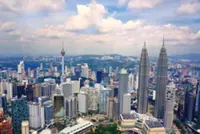Tourist demand sees unique stays flourishing in Penang
GEORGE TOWN: Unlicensed hotels in Penang are spiralling out of control due to tourist demand for “quaint accommodations”.
Follow us on our official WhatsApp channel for breaking news alerts and key updates!
Thank you for your report!





